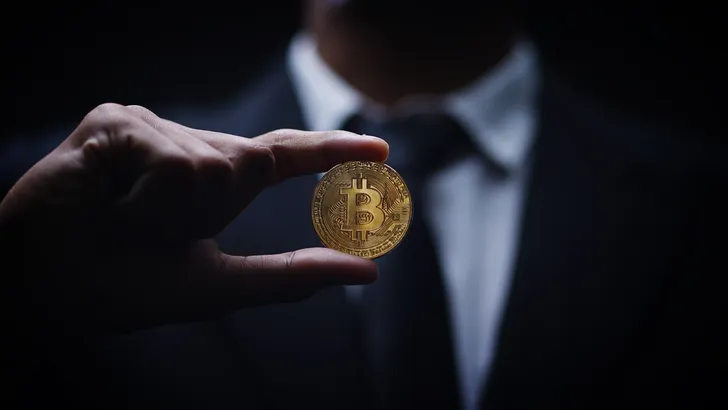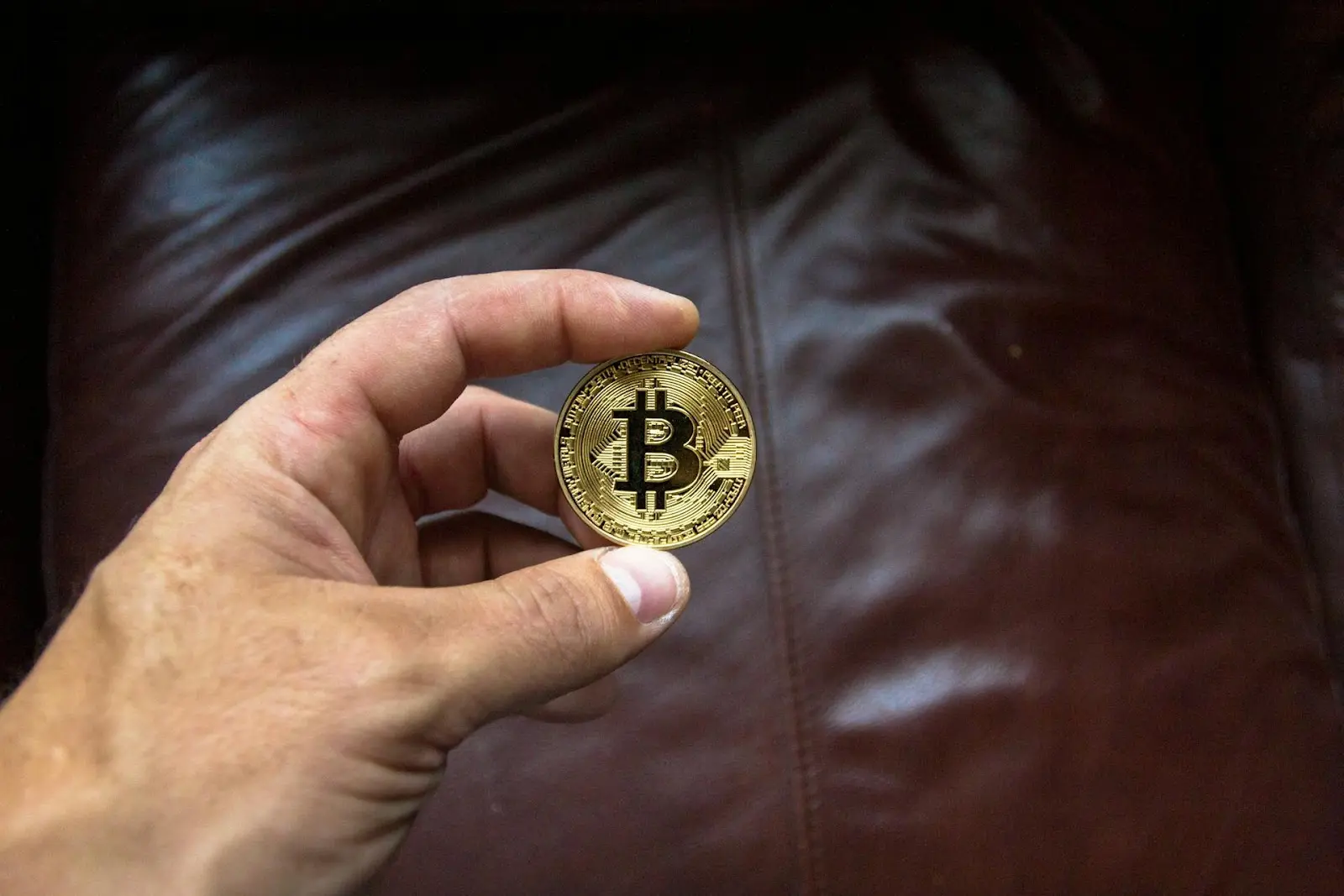What Is an “Unconfirmed Bitcoin Transaction” & Why It Happens?

bitcoin
In the thriving world of cryptocurrencies, Bitcoin stands as the one that started it all and the leading force behind the DeFi expansion. It’s the most widespread digital currency and the one with the biggest market capitalization. Still, not everything is running smoothly all the time on the network, and sometimes, a user might get alarmed by an unconfirmed Bitcoin transaction.
But what exactly is this phenomenon all about, and should you be concerned if it happens to you? Is it an integral component of every Bitcoin transaction or something to worry about? Is there anything you can do if you encounter this event? This article thoroughly explores unconfirmed Bitcoin transactions to teach you all you need to know about them. Let’s get started!
What Are Unconfirmed Blockchain Transactions?

Unconfirmed blockchain transactions are those that have been initiated by crypto holders and broadcasted to the network but have not yet been validated and added to a block. They are the byproduct of blockchain mechanics. Most transactions go through the unconfirmed phase before being either confirmed or canceled.
No blockchain transaction—especially one on the Bitcoin network, which operates using the proof-of-work consensus mechanism—happens instantly. That’s due to the very nature and inner workings of blockchain. Each transaction needs to be verified by multiple participants who reach a consensus before confirming and adding it to the blockchain.
At its core, blockchain is a transparent and decentralized ledger that contains information about every transaction since its inception. Every time a transaction occurs, it gets placed with others into an immutable block and added to a chain.
This chain of blocks was designed to help prevent a number of problems that exist when processing digital transactions, including hacking, double spending, manipulation, etc. Before a transaction gets added to it, it needs to be properly verified to ensure no malicious activity. That process isn’t instant, as it takes time and resources in the form of computing power.
As a result, attempted transactions are first placed in a memory pool, also known as a mem pool. Miners pick which transactions from the mem pool they want to verify and add to a block. As long as a transaction isn’t picked up by miners, it stays in a pool and remains an unconfirmed Bitcoin transaction.
Finally, miners in the proof-of-work network compete to solve complex cryptographic puzzles to create new blocks. The first one to successfully do that gets to confirm all transactions, add a block to the chain, and obtain block rewards. The process then repeats, and new unchangeable blocks get added infinitely.
What Is a Bitcoin Transaction Fee?
A Bitcoin transaction fee represents compensation for the miners who facilitate the process. First off, mining requires the use of expensive hardware and a moderate amount of electric energy. The purpose of fees is to cover the costs and earn miners Bitcoin on top of that. Simply put, fees act as an incentive for them to keep processing transactions.
In the past, some small transactions could be performed for free, but today every Bitcoin transaction incurs a fee. The fees are always paid by the sender using a sort of bidding system. In essence, the higher the fee a sender is willing to pay, the higher the chances that miners pick up their transaction.
As a result, network participants who want to pay a low fee might end up waiting for a long period of time, as miners will usually first process transactions that will award them higher fees.
Ultimately, a fee isn’t a fixed amount, and it depends on several factors, including:
- Network congestion
- Transaction size
- Transaction history
In general, sending small amounts of Bitcoin when there’s no network congestion will usually incur low fees.
How Long Do Bitcoin Transactions Take?
Bitcoin transactions can take around one hour to an hour and fifteen minutes on average and under the usual conditions. However, the exact number depends on many different factors and can vary a lot.
Firstly, a Bitcoin transaction confirmation will usually happen in about ten minutes. After that, it is placed in a memory pool, where a miner is going to verify it and add it to a block. However, that process can take several hours or even a few days.
Here are some of the two key factors that influence the transaction length:
- Network congestion. The Bitcoin network is capable of processing seven transactions per second (tps). During periods of high network activity, congestion can lead to vastly increased transaction times for a lot of users.
- Transaction fee. If a user attaches too little of a fee to their transaction, they might have to wait longer for it to be processed. Miners will generally prioritize transactions that bring them higher rewards.
With this in mind, the simplest way to speed up an unconfirmed crypto transaction is to either wait for a congestion period to end or to increase a fee. Another method includes using transaction accelerator services, which can speed things up, but there’s usually a payment involved.
5 Reasons for Unconfirmed Bitcoin Transactions
The most common reasons for unconfirmed Bitcoin transactions include:
- Network congestion. As mentioned before, the Bitcoin network, like most cryptocurrency networks and blockchains, comes with a limited number of transactions per second. This limitation stems from the blockchain trilemma, where a network always has to sacrifice one of the three features: security, scalability, or decentralization. Being a secure and decentralized network, Bitcoin allows for 7 tps, which is on the lower end of the cryptosphere.
- Insufficient fee. Including a low fee with a transaction is likely to put it at the far end of the queue. One of the main incentives for miners to pick up and validate transactions is fee rewards. This problem is more prominent during peak congestion times, when low fee transactions can end up stuck in the memory pool for days.
- Transaction size. The amount of Bitcoin that you want to transfer directly correlates with the size of the transaction, which is measured in bytes. As a result, the more assets you want to transfer, the more network resources are required, which results in a higher fee. Moreover, transaction size is also influenced by your transaction history. A history consists of input and output—all Bitcoin transactions received and sent, respectively.
- Sending unconfirmed funds. You can initiate a transaction with funds that you’re supposed to receive but the transaction hasn’t been confirmed yet. In that case, the following transaction will also be put on hold and marked as unconfirmed until the assets that are on their way to your wallet get there.
- Protocol differences. While this issue is rare, it’s still possible to use a wallet or a network with an outdated architecture. In these cases, transaction times can be exceptionally slow, as there might not be protocols designed to speed them up.
How to Fix an Unconfirmed Bitcoin Transaction

The simplest answer to “How do I fix unconfirmed Bitcoin transactions?” is to wait up to 72 hours. During that time, miners will likely pick up your transaction and add it to the blockchain, regardless of the fee or network status. The exact wait time will depend on the network congestion.
In most cases, the transaction will either be completed in 72 hours (the exact time varies between nodes), or the funds will be returned to your wallet after that time. However, if you want to speed up the process or send the funds again, with higher chances of a successful transfer, you can use the Replace-by-Fee (RBF) option.
Multiple wallets support RBF, where users can resend their transactions with a higher fee. This returns it to the mem pool, but a fee increase is more likely to draw the attention of miners the second time.
Another method of fixing an unconfirmed Bitcoin transaction involves transaction accelerators. There are many ways of accessing these services, including through centralized exchanges like Binance and KuCoin. However, it’s important to exercise caution when using these services, as they can charge high fees or even be scams.
Finally, you need to know how to check unconfirmed Bitcoin transactions before trying to fix them. Fortunately, the answer is simple: use a blockchain explorer to see if your transaction is still in the mem pool or verify its status.
Risks of Unconfirmed Bitcoin Transactions
The biggest risk associated with unconfirmed Bitcoin transactions is the potential for double spending. Double spending is an underlying risk associated with all digital transactions. It involves someone spending their assets twice before the initial transaction has been confirmed and their funds deducted from their holdings.
The Bitcoin network solves this problem by requiring multiple nodes to confirm the genuineness of every translation. Still, while blockchain is designed to be almost completely resistant to hacking and manipulation, there’s always a concern that someone might find a way to circumvent its defenses.
Another security issue comes from the fact that unconfirmed transactions stay vulnerable to manipulation until they are added to the blockchain. A malicious attacker can attempt to change their unique ID to alter or reject them, disrupting the network’s operation and harming the sender or the recipient.
Finally, there are volatility-related risks. Bitcoin, while one of the most stable cryptocurrencies, is still susceptible to rapid changes in price. As a result, the risk of the value of Bitcoin being sent changing increases the longer the transaction takes to confirm.
Key Takeaways
The cryptocurrency landscape is filled with complexities that can look rather intimidating to new participants. Unconfirmed Bitcoin transactions might seem like bugs in the system and a much bigger problem than they generally are. However, once you take a moment to learn about them, you understand that they are an integral part of the DeFi ecosystem.
Still, familiarizing yourself with network congestion and fee incentives can help you feel safer and be more efficient when transferring coins. You’ll be able to come up with better strategies and protect yourself from mishaps and high fees. Best of luck getting your first Bitcoin!
Unconfirmed Bitcoin Transaction FAQ
Can I push an unconfirmed Bitcoin transaction?
You can push an unconfirmed Bitcoin transaction by using a replace-by-fee (RBF) protocol. Essentially, that involves broadcasting to the network that you’re willing to pay a higher fee to send your assets.
Why is Bitcoin taking so long to get confirmed?
Bitcoin transactions can take a long time to get confirmed during periods of extreme network congestion. That’s due to the blockchain’s limitations of seven transactions per second. Another reason for long confirmation periods is the low transaction fee included by the sender.
How long does a Bitcoin transaction take?
A Bitcoin transaction takes, on average, between an hour and an hour and fifteen minutes. However, these times can increase during periods of high network activity and go up to 72 hours.
Can I cancel a Bitcoin transaction that’s unconfirmed?
You cannot cancel a Bitcoin transaction once it’s been broadcasted to the network, even if it’s still in an unconfirmed state. However, if no miner picks up your transaction for an extended period of time, it will be dropped, and the funds will be returned to you.